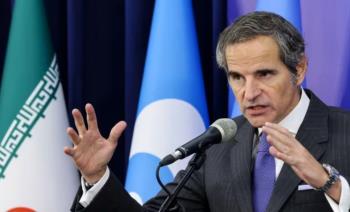Alwaght- At least one person has been killed and three others wounded after Saudi regime’s fighter jets struck pharmaceutical warehouses in Yemen’s capital province of Sana’a.
They bombarded the facilities in Saawan neighborhood on Thursday, Yemen’s Arabic-language al-Masirah television network reported, citing local sources.
Saudi military spokesman Turki al-Maliki confirmed the airstrikes, alleging that the kingdom had exercised restraint in recent months in support of UN efforts and initiatives to find a comprehensive and lasting political solution to the Yemen crisis.
The spokesman for Yemen’s Ansarullah resistance movement, Mohammed Abdul-Salam, denounced the aggression.
“The bombardment of pharmaceutical warehouses and other civilian facilities in Sana’a come in light of the recent statement by the UN Security Council, which is completely biased in favor of the coalition of aggression. Unfortunately, Saudi Arabia is forging ahead with its aggression and siege instead of stopping them and calculating the upshot of its foolishness,” he wrote in a post published on his Twitter page.
The Ministry of Public Health and Population of the Yemeni Salvation Government also condemned in a statement the Saudi airstrikes, stating that the raids resulted in severe damage to pharmaceutical warehouses, and complete destruction of all medicines and medical supplies inside them.
It described the strikes as a “criminal act,” emphasizing that they were carried out at a time when the Saudi-led coalition of aggression is preventing the entry of basic commodities, especially medications and medical supplies, into Yemen.
The statement said the alliance is intent on killing Yemeni people by paralyzing the health sector in the country, noting that the Saudi-led war coalition’s continued siege and bans on the entry of medicines and medical supplies have exacerbated the humanitarian crisis in Yemen.
The Yemeni Health Ministry went on to say that the bombardment of residential neighborhoods and critical infrastructure exposes the Saudi-led war alliance’s utter disregard for civilian lives amid the continued silence of the United Nations.
The ministry held the UN morally and legally responsible for the slaughter of Yemeni people and demolition of civilian infrastructure, stressing that its silence and inaction has emboldened the Riyadh regime and its allies.
Ansarullah: UN resolutions have no positive effect
Also on Thursday, Abdul-Salam dismissed the UN Security Council’s call for a halt to fighting in the country’s oil-rich Ma’rib province, saying the council blindly supports the Saudi-led war coalition, regularly assumes stances in favor of the kingdom, and its resolutions have had no positive effect.
“We emphasize that Yemen is in a defensive position, and will continue to counter aggression through all available means of defense,” Ansarullah's spokesman stated.
“Foreign intervention is a major obstacle to the Yemeni-Yemeni political solution. I believe international apathy towards Yemen's crisis is one of the most important reasons for the prolongation of the war,” Hossein al-Ezi, deputy foreign minister of the Yemeni Salvation Government, wrote in a post on his Twitter page.
“I rule out the possibility for a Yemeni-Yemeni political solution unless outsiders are pushed out," he added.
The UN Security Council called on Wednesday for “de-escalation” in Yemen and warned against “the growing risk of large-scale famine” in the conflict-ridden Arab country.
The 15-member council “stressed the need for de-escalation by all sides,” and demanded an immediate nationwide ceasefire.
They also called for an end to military operations by Yemeni armed forces and Popular Committees fighters against Saudi mercenaries in Ma’rib.
“The members of the Security Council expressed grave concern for the dire humanitarian situation, including prolonged starvation and the growing risk of large-scale famine,” the text said.
The UN body also repeated its concern over “the grave threat posed by the Safer oil tanker.”
The Safer tanker reportedly allows vessels to anchor offshore and transfer oil extracted and processed from installations in the Ma'arib oil field in central Yemen.
The tanker is said to contain 34 crude oil tanks of different sizes and volumes, amounting to a total capacity of around 3 million barrels. The ship has been moored several kilometers outside the Red Sea port of Ras Isa, north of Hudaydah.
Missile attack on Saudi troops in Jizan
On Thursday, Yemeni army forces and allied fighters from Popular Committees launched a missile strike against Saudi troops in the kingdom’s southwestern border region of Jizan, killing and wounding dozens of them in the process.
Spokesman for the Yemeni Armed Forces Brigadier General Yahya Saree said five homegrown ballistic missiles were fired on Wednesday evening at a major position of Saudi military forces, which houses command headquarters, arms depots and hangars for Boeing AH-64 Apache attack helicopters.
He added that the missiles precisely hit the designated targets, which resulted in the killing and injury of more than 35 Saudi forces, including senior officers and pilots.
Earlier, Saudi social media activists said the missiles struck a Saudi military base in Abu ‘Arish city, adding that six officers as well as 12 conscripts were killed as a result.
They added that at least 20 Saudi soldiers sustained injuries in the attack as well.
Saudi Arabia, backed by the US and regional allies, launched the war on Yemen in March 2015, with the goal of bringing the government of Hadi back to power and crushing Ansarullah. The war has left hundreds of thousands of Yemenis dead, and displaced millions more. It has also destroyed Yemen’s infrastructure and spread famine and infectious diseases.
Yemeni armed forces and the Popular Committees have grown steadily in strength against the Saudi-led invaders, and left Riyadh and its allies bogged down in the country.



























